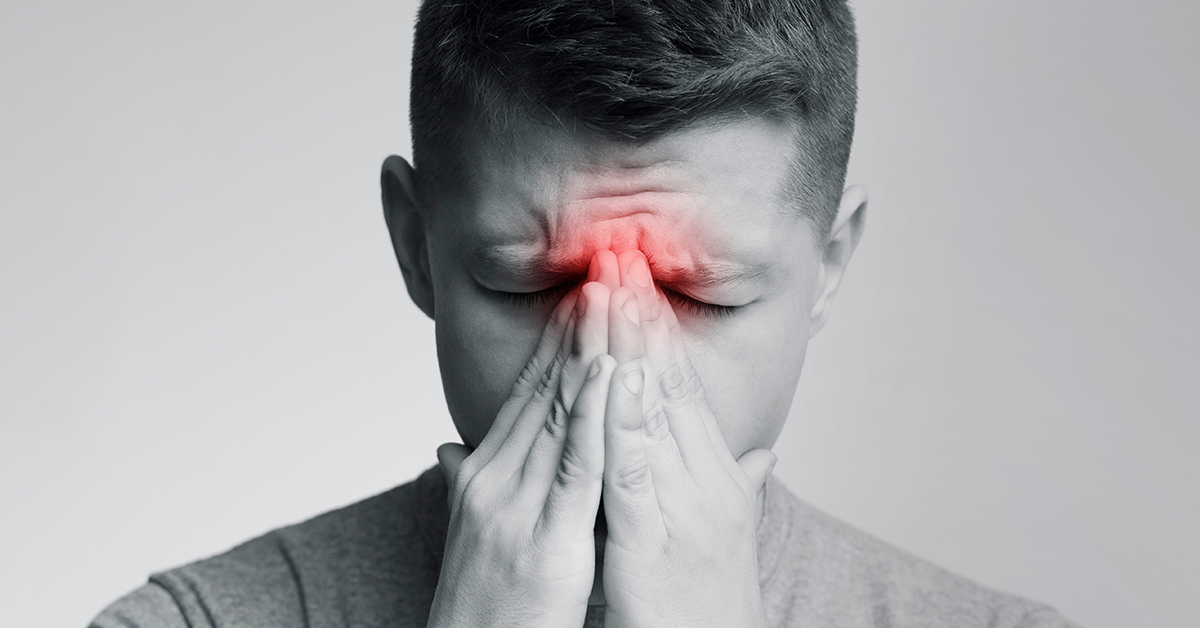
Living with chronic sinusitis is an everyday battle. In chronic sinusitis, the symptoms are persistent and can often worsen. This hinders the patient’s ability to lead a normal day or week(s). They cannot focus on their daily activities or enjoy their time doing what they like the best, affecting their quality of life. In this article, you will read more about chronic sinusitis’s causes, symptoms, and treatment.
The sinuses are hollow spaces behind facial bones. They are always kept moist by a normal production of mucus which usually drains through the nose. In cases of impaired drainage due to infections or allergic reactions, all the mucus, pus, and other fluid in the nasal cavities and sinuses remain trapped, leading to sinusitis.
Prolonged sinusitis, usually for over 12 weeks, is categorized as chronic sinusitis. This condition causes inflammation, swelling, soreness, and pressure in one or more sinuses. Although uncommon, chronic sinusitis is prevalent in people of all age groups.
Chronic sinusitis is also referred to as chronic rhinosinusitis. While acute sinusitis lasts for a shorter duration and is often caused by a viral or bacterial sinus infection, chronic sinusitis has other causes. This means that the chronic condition is resistant to antibiotics in most cases, and the treatment of chronic sinusitis rarely resorts to antibiotics.
The treatment for chronic sinusitis is always dependent on the underlying cause. Some of the most common causes are explained below.
Any blockage, such as tissue growth inside the nose, which prevents the sinuses from draining, could cause chronic sinusitis. This is a result of the difficulty in breathing due to blockage of the nose or the airway.
Apart from tissue growth, other causes make people more likely to develop chronic sinusitis due to limited air passage in one or both nostrils. These include a deviated septum, nose or face damage, nasal tumors, or chronic infections. In these cases, surgeries are the most preferred option for chronic sinusitis treatment.
Inflammation of the sinus wall is common and is caused by the accumulation of mucus in either or both of the sinuses. This mucus blocks nasal pathways, which results in poor drainage of the affected sinus. The constant inflammation gives rise to infections which can usually be solved with traditional antibiotics.
However, in some cases, the symptoms of chronic sinusitis are persistent even after a full antibiotic dose. Other times, this antibiotic is ineffective on fungal infections and antibiotic-resistant infections. Hence, other means of chronic sinusitis treatment must be sought.
Bacterial colonies are referred to as biofilms. This bacterium multiplies rapidly and creates a thick film over the sinuses. Similar to the layer of dental plaque, these are difficult to get rid of, and meticulous strategies are used to eradicate these bacteria colonies. These include nasal irrigation and surgery.
It is a widely known fact that people with asthma and allergies have a higher probability of developing chronic sinusitis. Exposure to irritants and allergens causes these conditions that are already present to escalate. This results in increased pressure and irritation in the nasal passages and sinuses.
Living with chronic sinusitis is further made difficult if the patient has asthma or other allergies because of passive smoking, dust, and nasal allergens such as pollen, air pollution, and other sources of irritation.
Almost every infection and inflammation may be fought off with a healthy immune system. With diseases that weaken the body’s immune system, it is much difficult to fend off external allergens and other infectious agents. These pre-existing conditions that contribute to decreased immunity include cystic fibrosis, in which drainage of mucus is impaired, resulting in multiple bacterial infections. Immune system diseases, such as human immunodeficiency virus (HIV) and gastroesophageal reflux disease (GERD), make the body vulnerable to chronic sinusitis.
If you have two or more of the following symptoms, the sinusitis is said to be chronic.
In some cases, chronic sinusitis may also cause vision problems if the infection spreads to the eyes.
Treatment of chronic sinusitis includes over-the-counter (OTC) painkillers such as ibuprofen (Advil) and acetaminophen (Tylenol) to relieve the headache and facial pain. Nasal sprays help with inflammation and nasal polyps with corticosteroids. Chronic sinusitis caused by allergies or an infection could be treated by giving medications to treat the underlying allergies or infections.
Home remedies could also be used to treat this condition, such as using the saline solution as a lubricant made from water and salt to help relieve swelling and enable easy drainage of the mucus. Mucus drainage and inflammation reduction can further be assisted with using a humidifier or hot water steam.
In rare cases, for instance, if medications and other solutions are rendered ineffective on this chronic condition, surgery could be recommended. There are two main types of surgeries recommended by doctors to treat chronic sinusitis.
One of those is endoscopic sinus surgery. A thin camera-fixed tube is sent into the sinuses to see the problem, may it be nasal polyps, mucus, or any other tissue obstructing the sinuses and nasal airways.
The other surgery is either of the two: septoplasty or rhinoplasty. This is the deviated septum surgery or basic nose surgery in which the wall between the nostrils is reshaped to facilitate easy breathing.
See Also: 7 Congestive Heart Failure Symptoms, Causes And Treatment
Once the symptoms of chronic sinusitis are identified, we recommend visiting a doctor and getting a diagnosis. Once the doctor determines the underlying cause of this condition, the treatment would be started as soon as possible to reduce the level of inflammation so that it never increases again in the future.
As mentioned above, self-care along with the doctor’s prescription should be strictly followed to prevent chronic sinusitis from negatively affecting your daily activities.